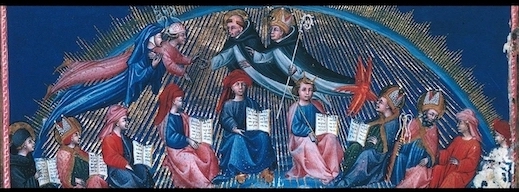Relação entre a beleza e a quarta via tomista
Palavras-chave:
Pulchrum, Transcendentals, Fourth Way, Metaphysics, Graduation, ParticipationResumo
No argumento da quarta via para provar a existência de Deus (S. Th., I, q. 2, a. 3, co.), São Tomás busca estabelecer a ligação entre a graduação das perfeições existentes nos entes finitos e sua aplicação a Deus como Maxime Ens, causa e fundamento de todas elas. Nesta via, talvez a menos estudada de todas, o Santo Doutor menciona alguns exemplos de perfeição — bonum, et verum, et nobile —, entretanto não se refere explicitamente ao pulchrum. O objetivo do presente artigo é buscar uma chave de leitura para uma possível relação entre a quarta via tomista e o pulchrum considerado como transcendental. /// In the argument of the Fourth Way to prove the existence of God (S. Th., I, q. 2, a. 3, co.), St. Thomas seeks to establish the link between the graduation of perfections existing in finite beings and their application to God as Maxime Ens, which is the cause and foundation of them all. In this Way, perhaps the least studied, the Holy Doctor mentions some examples of perfection — “bonum, et verum, et nobile” — but does not refer explicitly to pulchrum. The objective of this article is to seek a basis to indicate the relationship between the Thomistic Fourth Way and pulchrum considered as a transcendental.Edição
Seção
Articles






